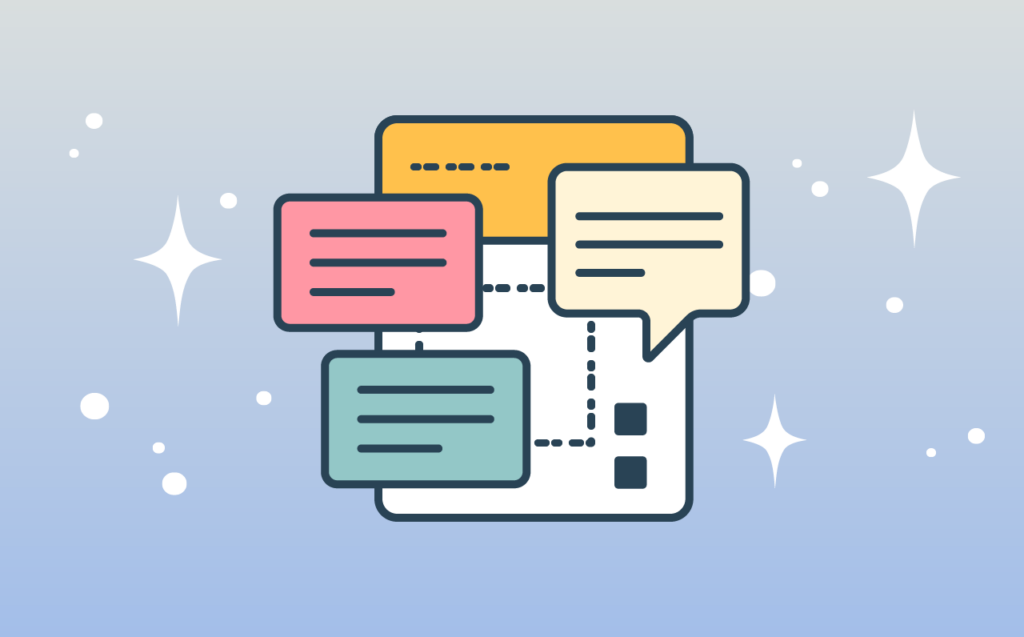Work in mental health long enough, and you’ll notice that therapy works best when clients stick with it—which is why we place such a huge emphasis on client retention. But lately, I’ve noticed an even bigger problem that behavioral health organizations are grappling with: therapist retention.
Getting (and keeping) clients is no longer the biggest challenge for providers. In fact, some of my colleagues in Maryland have told me they have a thousand people on their clinic’s waitlist—and due to widespread therapist shortages, they can’t seem to make any headway in decreasing the backlog. Meanwhile, some organizations I work with have turned over nearly their entire workforce in the past three years.
The retention issue is complex. Pay and caseload are part of the problem, but so are heavy administrative burdens, lack of quality supervision, and limited opportunities for professional growth. Fixing the therapist retention problem hinges on cultivating a workplace where therapists can stay, grow, and focus on their work with clients.
Get on the road to becoming a behavioral health employer of choice. Download your free guide to building a best place to work.
And while it’s not a magic cure-all, AI can be a huge help in that effort. By taking on some of the administrative load, AI allows therapists to conserve time and energy. When used thoughtfully, it can shift retention efforts from short-term fixes to sustainable practices that support both therapists and their clients over the long haul.
The Core Challenges of Therapist Retention
I don’t know a single behavioral health organization that isn’t concerned about provider retention. It makes sense; turnover is a very expensive problem. Recruiting and training replacement clinicians can cost up to double their annual salary. Of course, financial strain is only part of the story.
Disruption to Client Progress
For clients, the impact is pretty direct. Some have been seeing their particular therapist for years, and then suddenly, poof—they’re gone. If a client is insured through Medicaid or relies on a community clinic, that disruption can mean losing one of the few consistent supports in their life. They go in expecting to check in with a therapist who already knows them well, only to start over with someone new—repeating their story, being expected to rebuild trust, and putting their progress on hold.
Damage to Team Morale
For therapists who stay, it creates a vicious cycle. Remaining staff must take on heavier caseloads to fill the gaps, which leads to burnout—and often results in more turnover. And while increasing wages and right-sizing caseloads are great steps toward reducing turnover, they’re not the be-all and end-all. Frustrations over lack of support and professional development opportunities are just as common in exit interviews.
These are not new problems, but they’re also not unsolvable. Therapists stay when they feel supported—when they have the time and tools to focus on their clients and the space and tools to grow in their careers.
Reducing Administrative Burden through AI
Therapists know the interactions they have with a client mean more than what gets written down in a progress note. Unfortunately, many of the structures that support the therapeutic system depend on documentation to keep moving. That’s why therapists end up spending so much time on documentation that it often takes over their evenings and weekends.
The Freedom to be Fully Present
Not only is documentation incredibly time-consuming outside of the treatment room; it also pulls focus during therapy sessions. Therapists find themselves sitting with a client, trying to stay fully present, but also worrying about all the details that need to go into the note.
AI can’t take on the work of therapy for clinicians, but it can at least take documentation off their plate—and their minds. Tools like Eleos dramatically reduce the administrative workload by managing much of the documentation process. Therapists can enter brief bullet points or capture ambient session audio—and the AI uses those inputs to draft full, compliant progress notes that providers can simply review, edit, and approve.
Instant Feedback to Fuel Professional Growth
AI can also help therapists reflect on and improve their work in meaningful ways. Tools like Eleos analyze session data and provide therapists with care insights that help them grow as clinicians. They can see patterns in their interventions, track which approaches have been most effective, and use that knowledge to provide even better care.
I can’t tell you how much of a difference this makes. I have heard therapists say things like, “I am never leaving this organization unless they take away Eleos.” Therapists using Eleos tell me they are spending fewer weekends catching up on notes and feeling less overwhelmed during the week. Supervisors notice the change, too, with documentation increasing in overall quality and notes being submitted in a more timely fashion.
These therapists work in community behavioral health, and they often live in the same neighborhoods as their clients. They care deeply about the work they do. By investing in tools like Eleos—by allocating resources to make therapists’ lives easier—leaders show how much they care about making therapy work sustainable.
Addressing Turnover with AI as a Partner, Not a Replacement
AI can support therapists, but it can’t—and shouldn’t—replace them. What makes therapy effective is the human connection between therapist and client. The trust built over time, the intuition honed through experience, and the humanity brought into every session are things machines just can’t replicate.
At Eleos, we have always approached AI as a tool to amplify therapists’ strengths, not as something to take their place. AI’s role is to provide meaningful support, offering insights and assistance so therapists can truly focus on their clients. Eleos is designed to make the therapist’s work more manageable without undermining their expertise or intuition.
Therapists tell me they appreciate how Eleos fits seamlessly into their day-to-day workflow. The tool doesn’t require them to change how they do things. Instead, it adapts to what they are already doing, helping with documentation or compliance when they need it and staying out of the way when they don’t.
We talk a lot about what clients need—and for good reason—but we can’t overlook the therapists providing that care. If we want them to stay, we have to make their work more sustainable. That means taking a hard look at the things that push therapists to leave, like overwhelming documentation requirements or limited opportunities for growth.
Tools like Eleos give behavioral health organizations an alternative way of doing things so they can break out of the cycle of chewing up therapists and spitting them out. By stepping in to handle some of the tasks that pull therapists away from their clients, Eleos gives them the space to focus on what really matters. It helps them stay connected to the work they came into this field to do: supporting their clients and making a difference.
Retention doesn’t just mean keeping therapists from burning out. We also have to think about creating environments where they can thrive—where they feel supported, valued, and able to do their best work. When therapists have that, everyone benefits: the clients, the clinics, and the communities they serve.
Ready to transform the staff experience in your organization with behavioral health AI? Request a demo of Eleos today.

